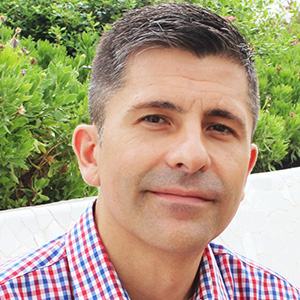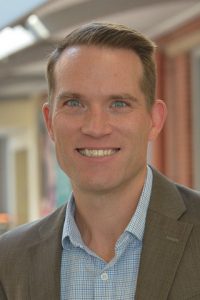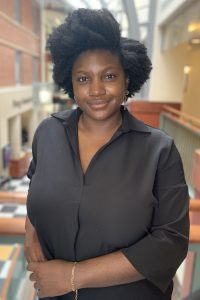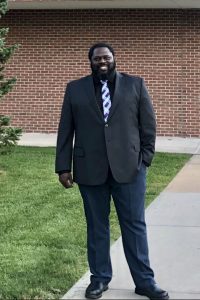Check out the highlights from the HESA Program’s latest e-newsletter.
News
Fall 2022 Alumni Message From Program Coordinator
Dear HESA UConn Alumni,

Greetings from Storrs! I hope this newsletter finds you well. While we continue to confront challenges in our society, on our campuses, and in our profession, I hope you are able to center your needs and those of your loved ones in everything that you do.
Let me transition to some exciting program updates. In true UConn HESA fashion, there has been much going on in our vibrant learning community in recent months. This semester we greeted our first-year and continuing cohorts to campus for our welcome events in late August. This semester we have nearly 30 students who are enrolled in our courses.
We are in the second year of our pilot admissions process, and I am delighted to report that it is going well. We continue to offer a rich number and type of Assistantships throughout our campus. In fact, this past year we welcomed some new HESA-Affiliated Graduate Assistantships in the Center for Academic Programs (CAP)/Student Support Services (SSS) and Academic Center for Exploratory Students (ACES) to our learning community. Additionally, we have begun to admit students who are able to enroll part-time in our program, all of them full-time HESA professionals. Given our program’s emphasis on equity, we are excited to welcome this new group of students into our program. The combination of students who hold a Graduate Assistantship and Practicum and others who have full-time employment allows us to continue to our work to center praxis in the development of scholar-practitioners.
We are actively recruiting for our next group of UConn HESA students, please encourage interested students to attend one of our upcoming information sessions. More information about our program and admissions process, including how to sign up for an information session, can be found here.
Also, as a reminder, we are actively recruiting students for our PhD concentration—Higher Education, Racial Justice, and Decolonization (HERJD)—in the department’s Learning, Leadership, and Education Policy Program. More information about the HERJD PhD concentration can be found here and inquiries can be sent to Dr. Saran Stewart.
We are looking to host some alumni events as our faculty present their work and represent our program at regional and national conferences. Please be on the lookout for emails sharing information about those events, including an event we will host on our UConn, Hartford campus on Tuesday, November 15th 5pm-7pm during the NASPA Region 1 Conference. The UConn Foundation will send an email invitation shortly. If you do not receive an invitation, please email us at hesa@uconn.edu so we can make sure you receive it. We hope you can join us!
Additionally, we are continuing initiatives started last year to further engage with our alumni. We want to know about all the great things happening in your worlds—good news, publications, promotions/new jobs, programs developed, and more. To let us know, please complete our HESA Insider form. We plan to highlight some of these good news on our social media accounts, website, and/or future newsletters.
And speaking of our alumni, in the spring, Ryan Haynes ’20, Residence Life Coordinator, Pomona College, joined the Neag School Alumni Board. A special congratulations and thank you to Ryan for agreeing to serve in that important work.
Another way to get involved with our program is to consider hosting a practicum opportunity for a current student. We are currently collecting practicum opportunities for the spring 2023 term. Practica can be in-person or virtual, so if you are an alum far from our Storrs campus, this is your opportunity to supervise and mentor a current UConn HESA student. To see more information about hosting a practicum opportunity and how to submit a potential site you can go here. If you have any inquiries about how to host a practicum opportunity, please contact Dr. Adam McCready.
Also, I encourage you to follow us on Instagram, Twitter, and LinkedIn. We enjoy hearing about all the wonderful work our alumni and campus partners are doing, so do contact us via email and/or by tagging us.
Wishing you a wonderful remainder of 2022 and that 2023 brings you health, joy, and more good news for you to share with the UConn HESA community!
Take care . . . cuídense!
H. Kenny Nienhusser, EdD (él, he, him, his)
Associate Professor and Program Coordinator, Higher Education and Student Affairs
Faculty Director, La Comunidad Intelectual
Scholar-Practitioners in HESA

The Higher Education and Student Affairs (HESA) program in the Neag School’s Department of Educational Leadership focuses on building “Scholar-Practitioners.” HESA promotes the development of professional knowledge based on theory and practice, enhanced by personal values, lived experiences, self-reflection, and ethical conduct.
Adam McCready, assistant professor-in-residence of Higher Education and Student Affairs, says that the term “Scholar-Practitioner” lies in the interaction between knowledge and an individual’s practice.
“The HESA Program believes that it is fundamental to a student’s success to develop an identity as a Scholar-Practitioner,” McCready says. “The field of higher education is constantly evolving. Promoting a commitment to lifelong learning and development helps folks improve as practitioners or future scholars.”
“We provide a forum for students to seek opportunities to learn and grow,” he says
McCready’s research focuses on critically examining the college student experience and offering recommendations for practice in higher education and student affairs. By engaging in service directly related to his field, he hopes to provide excellent learning to his students. He encourages students to learn from theories and create informal theories through knowledge gained from practice.
“We hope to develop reflective and inclusive Scholar-Practitioners who work to address structures that marginalize or oppress students and other stakeholders,” McCready says, “We want to create a framework for students to engage in social justice throughout their careers in higher education and beyond.”
McCready believes creating an equitable higher education landscape is a necessary and inevitable goal.
Finding Where Scholarship and Service Converge

Sade Erinfolami ’22 MA says that “Scholar-Practitioner” is about finding where scholarship and direct student service converge and learning to use that scholarship to inform one’s practice. Erinfolami finds value in understanding the basic tenets of college student development, critical race theory, and scholarships surrounding international student support to inform her practice.
“At HESA, it was a great experience. I enjoyed my college student development course,” she says.
The HESA program encourages students to learn from direct experiences and reflect on them to master skills and principles. The experiential learning opportunities are facilitated through graduate assistantships and practicum experiences in addition to classroom learning.
As part of Erinfolami’s learning, she conducted informal research on international students and international student support. In addition, she worked at the UConn Law School in the international and graduate program.
“I got a chance to work with exchange students,” Erinfolami says. “The scholarship I found on international students’ engagement and acclimation to the American university environment was helpful.”
“This experience was beneficial in informing her practice moving forward,” she recalls.
Erinfolami also worked in the UConn Dean of Students office, as part of a practicum experience, on the UConn Storrs campus and engaged in one-on-one student advising support and case management.
“It was fantastic because I could grow my counseling, advising, and advocacy skills,” she says. “That was one of the best practical experiences. I learned to build on what we’ve learned throughout our coursework. The best thing I have gotten from the HESA program is how to be an advocate.”
Enabling Students to Become Critical Thinkers

saac Barber, a HESA-affiliated graduate assistant supervisor and director of Student Union and Event Services, plays a crucial role in supporting the HESA program.
“It is important to spend time learning, refining, and building the foundation of the actual discipline instead of looking at them as mere concepts,” Barber says.
“You must provide the learning opportunities and space for people to engage. That is how I approach this work and have approached being a part of HESA as a graduate assistant supervisor,” he says.
Barber believes that the HESA program enables students to become better critical thinkers and thus better Scholar-Practitioners.
“The ‘scholar’ part of Scholar-Practitioner is important, as are the outcomes of the HESA program” says Barber. “What a student learns and how a student develops when practicing what they have learned is also important.”
“I hope students get through this program through thoughtfulness and recognizing that the answer isn’t always there,” he says. “You have to reach for it.”
Equity and Inclusion in the HESA Program

The Higher Education and Student Affairs (HESA) program in the Department of Educational Leadership is committed to creating a learning environment for its students that focuses on equity and inclusion. HESA embraces the lived experiences of students from historically marginalized communities such as BIPOC, across all religions, LGBTQIA+, disabilities, and gender identities or expressions.
Tania Flores, a current student, feels that the HESA program does a great job of incorporating equity and inclusion into the classroom and beyond. A better understanding of equity in practice, she says, has helped her think about her pedagogy and the kind of practitioner she would like to become one day. She says she believes that equity and inclusion are frameworks meant to be practiced and lived every day.
“When we think about the issues of equity and inclusion, it is necessary that we do not relegate them to checklist items and instead conceptualize them as integral parts of the work that we are trying to implement every day within the program,” Flores says. “Our professors do a great job at that. It is not something that ever feels like it is ‘tacked on’; equity and inclusion are a running thread throughout the program.”
HESA also aims to deepen the understanding of equity and inclusion through practical experiences. Practicum and graduate assistantships enable the students to transform knowledge into practice.
“When we think about the issues of equity and inclusion, it is necessary that we do not relegate them to checklist items.”
— Tania Flores, Current HESA Student
Flores was a teaching assistant in the Social Justice Leadership, Equity, and Change Ph.D. course with Dr. Saran Stewart, Associate Professor of Higher Education and Student Affairs, and Dr. Frank Tuitt, Professor of Higher Education and Student Affairs and Vice President and Chief Diversity Officer. It was an experience Flores calls “transformative.”
“It pushed me to rethink what equity means in practice, not just as a theoretical conception,” she says. “Such an experience allowed me to bring that knowledge into my assistantship and career moving forward.”
‘More Room for Vulnerability’
Shalyn Hopley Malko (she/her/hers, HESA ’20), an alumna of the program and now Academic Success Manager at Clark University, says the HESA program prepared her to engage in equity and inclusion work by emphasizing the importance of engagement with peers in her cohort.

“We all have different lived experiences and identities. Having peers to share those ideas and perspectives makes HESA worthwhile,” she says. “This program helped me take those experiences and put them into a larger context of research.”
The HESA program curriculum fosters collaborative learning enriched with knowledge gained from different life experiences. Students work through the curriculum together with the same cohort of students. Hopley Malko recalls having the cohort as a huge benefit.
“HESA’s structure allowed for a diversity of perspectives that you do not get as a professional, just going about your day-to-day,” she says. “You practice, have an assistantship, and also have your classroom learning. It gives more room for vulnerability, something I think is vital for practitioners with dominant identities who want to engage in equity work.”
“We all have different lived experiences and identities. Having peers to share those ideas and perspectives makes HESA worthwhile. This program helped me take those experiences and put them into a larger context of research.”
— Shalyn Hopley Malko ’20 HESA
Becoming Social Justice Equity Leaders
Another integral element of the HESA program is understanding issues that impact society, how they exist in the U.S. higher education system and institutions, and ways to address them in practice. The faculty at HESA play a vital role in developing leaders who can recognize such inequalities and implement the right policies to dismantle them.

Dr. Stewart (she/her/hers) says that through the HESA program, students become much more attuned with who they are in terms of becoming social justice equity leaders. For her, equity and inclusion in HESA means accepting, nurturing, and supporting students from all backgrounds. Her teaching and research address equity, inclusion, access, critical race theory, and inequities in higher education.
“My research led me to use my capital within higher education as a professor and recenter the voices marginalized within traditional research,” she says. “Equity is providing the resources that the individual needs based on their identities and circumstances. Inclusion is beyond just identities, but their journeys, familial histories, and stories.”
Dr. Stewart also incorporates this mindset in course assignments. For example, she uses analytical self-reflective journals that allow students to use their lived experiences as anchors for knowledge.
“Equity is providing the resources that the individual needs based on their identities and circumstances. Inclusion is beyond just identities, but their journeys, familial histories, and stories.”
— Saran Stewart, Associate Professor, HESA
“We encourage students to bring their whole selves into the learning environment to better understand equity, inclusion, and a lot more. That self-work is essential before they go out into other organizations and do the real work.”

Truth Hunter (she/her/hers, ’14 HESA), current Ph.D. student, is co-instructor for the Structured Dialogue in Student Affairs course. HESA is one of the few programs of its kind that requires a structured dialogue course that focuses on basic approaches to intragroup and intergroup dynamics and implications for personal and educational development of students and student affairs professionals. Truth encourages students, particularly underrepresented students, to develop a scholarly identity, which affirms their intellectual contributions and distinct perspectives in the academy.
“What’s revolutionary about inclusive learning in the intergroup dialogue class is that I am positioned as an instructor to honor what each student brings into the classroom and then think about how the class curriculum can meet students where they are,” she says. “As an educator, I think equity is about removing those barriers that prevent someone from excelling.”
HESA Fall 2022 Newsletter
Check out the highlights from the HESA Program’s latest e-newsletter.
10 Questions: From Jonathan the Mascot to Student Affairs Leader
As UConn’s assistant vice president for student affairs and executive director of student activities, Joseph P. Briody ’86 (BUS), ’95 MA, ’96 Ph.D. is a Husky through and through.
From graduating with a bachelor’s in accounting to attaining his master’s in education and his doctorate in higher education administration, Briody shaped his career through an extensive academic career, paired with professional roles in accounting and nonprofit organizations — not to mention his earliest professional experience: dressing as UConn’s quintessential Husky mascot, Jonathan. He was also instrumental in the mascot makeover, and two generations of Briodys have donned the costume. Here, he explores the factors that fueled his academic decisions, the responsibilities and accomplishments of his current position, as well as the effects of the COVID-19 pandemic on his position.
#ThisIsAmerica Panel Features Critical Race Theory Discussion
National Hispanic Heritage Month Puts Focus on Latinx Experience at UConn
Deepening our Learning During Asian/Pacific American Heritage Month
May is Asian/Pacific American Heritage Month (APAHM) and at UConn, this month is celebrated each year in April. As we recognize APAHM this year, we have been reflecting on the increase in anti-Asian violence and racist attitudes that we have seen over the past year in the United States and in our own university community. The HESA program expresses our solidarity with the Statement on Anti-Asian Violence released by the UConn Association for Asian American Faculty and Staff last month.
We echo our colleagues’ sentiments about the need to systemically fighting anti-Asian racism: “What is happening is wrong and we must stand together to not only identify and call-out this kind of behavior and its bad actors; but we must work systemically and synergistically to change culpable aspects of our university and society, to ultimately eradicate this malignancy” (UConn AAAFS). Toward this aim, our program has committed to three goals:
- Enhance our curriculum and course syllabi to be more critically-inclusive of Asian and Asian American experiences in higher education;
- Host a set of teach-ins to better demonstrate our commitment to a more critically-inclusive curriculum; and
- Continue to work with our campus partners to share and receive best practices on cultural competencies and solidarity initiatives.
Though we intended to hold our teach-ins in April, our HESA community experienced an unexpected tragedy during that time, so we have chosen to delay these events until a future date. However, we still want to offer a set of virtual learning resources to our HESA community based on filmmaker and UCLA professor Renee Tajima-Peña’s PBS documentary series “Asian Americans.” We hope that members of our community will engage with and learn from these resources to deepen their understanding about the Asian American experience.
Interviews with Filmmaker Renee Tajima-Peña
New Yorker interview with Renee Tajima-Peña about the History of Anti-Asian Violence in the U.S.
NPR Podcast Interview with Renee Tajima-Peña about the Docuseries “Asian Americans”
PBS Documentary Series “Asian Americans”
“In an era of exclusion and U.S. empire, new immigrants arrive from China, India, Japan, the Philippines and beyond. Barred by anti-Asian laws they become America’s first “undocumented immigrants,” yet they build railroads, dazzle on the silver screen, and take their fight for equality to the U.S. Supreme Court.”
Episode 2: “A Question of Loyalty”
“An American-born generation straddles their country of birth and their parents’ homelands in Asia. Those loyalties are tested during World War II, when families are imprisoned in detention camps, and brothers find themselves on opposite sides of the battle lines.”
“During the Cold War years, Asian Americans are simultaneously heralded as a Model Minority, and targeted as the perpetual foreigner. It is also a time of bold ambition, as Asian Americans aspire for the first time to national political office and a coming culture-quake simmers beneath the surface.”
Episode 4: “Generation Rising”
“During a time of war and social tumult, a young generation fights for equality in the fields, on campuses and in the culture, and claim a new identity: Asian Americans. The war’s aftermath brings new immigrants and refugees who expand the population and the definition of Asian America.”
“At the turn of the new millennium, the country tackles conflicts over immigration, race, economic disparity, and a shifting world order. A new generation of Asian Americans are empowered by growing numbers and rising influence but face a reckoning of what it means to be an American in an increasingly polarized society.”
In Solidarity with our Asian and Asian American Community
Dear HESA Community,
Just a few days ago, we wrote to you with heavy hearts to name, acknowledge, and reckon with the racial violence impacting BIPOC communities, particularly Asian and Asian American communities. We have few words to express the sadness we feel as we mourn the murder of eight people in Atlanta, of which six were Asian and Asian American women. These murders are horrific and we ache at the continued violence hurled at Asian and Asian American people.
To our Asian and Asian American community members, we grieve with you. We understand this violence is part of a long-standing anti-Asian history that continues today. And, we acknowledge our responsibility to show up in our practice and in our community in solidarity and with love.
We strongly encourage our HESA community to attend a virtual panel this evening March 18 at 5pm ET on “Asians in America: Anti-Asian Violence and the Fight Against Invisibility” which will feature UConn students, faculty, and staff; provide perspectives on today’s climate; and discuss its impact on UConn’s Asian and Asian American community. Register for the event here.
We in HESA continue our resolve to be more inclusive and supportive of our Asian and Asian American community members. We are committed and continue to work on the following:
- Enhance our curriculum and courses to be more critically-inclusive of Asian and Asian American experiences in higher education;
- Host a set of teach-ins on April 7th and 8th for our students to better demonstrate our commitment to a more critically-inclusive curriculum; and
- Continue to work with our campus partners to share and receive best practices on cultural competencies and solidarity initiatives.
In solidarity, and with love,
HESA Faculty
